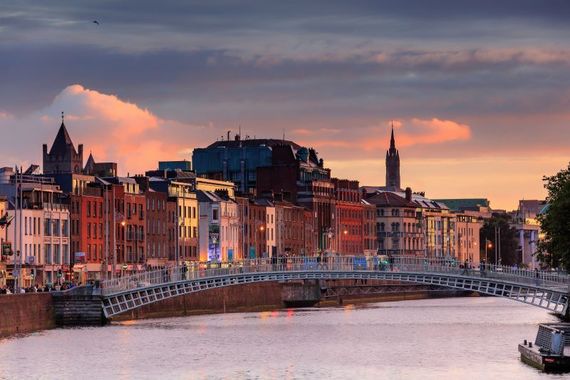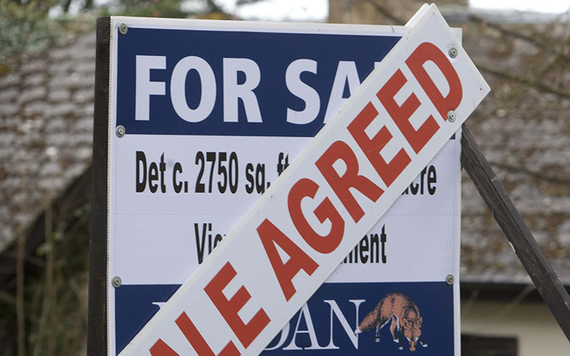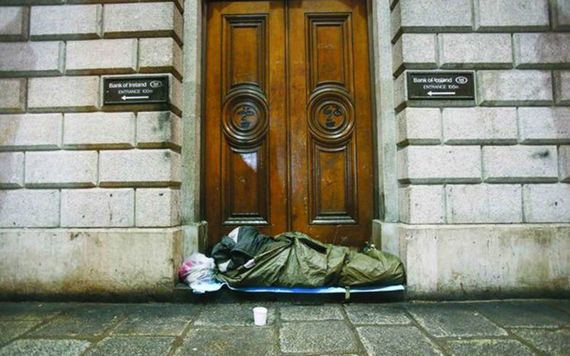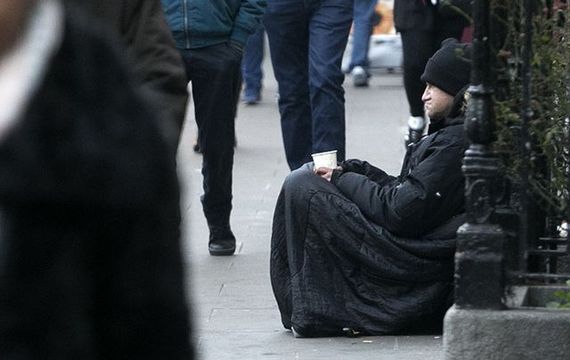The Irish historian R.F. Foster writes about “the tipping point” in revolutions, “the moment when substantive change becomes possible.”
The Irish people are at a tipping point now. Their own government has yet to take notice of course, which could be consequential for them shortly.
Because oddly enough, for years now, they have allowed the Irish property and rental sectors to replicate cut-throat Manhattan investment practices, driving up rents and inflating housing prices as though Dublin were a borough of the Big Apple.
Investor landlords, private equity funds and real estate investment trusts have quietly been given the run of the country with predictably disastrous results for a new generation. Would-be home buyers are being locked out of the possibility of home ownership, as they are locked into an inescapable cycle of ever-rising rents.

These wounds are self inflicted in other words, the result of short-sighted government economic and housing policies that sought to attract international investor funds though NAMA (National Asset Management Agency) which in turn has allowed for unprecedented rent and house price inflation, highly attractive tax laws, and a truly disastrous shift from state-built social housing to private rental schemes.
Deep-pocketed international investors have enriched themselves as they've overheated the Irish property and rental market, chiefly by turning properties into investments, in turn adding to the demand for housing and further inflating prices, making them far less affordable now for the less minted (that's you, me and everyone else).

It's a new system where the wealthiest always win and the rest of us are priced out. It's the Manhattanization of the Irish property market, in other words. Other examples of what's happening to Ireland now can be seen worldwide now. These stories don't have happy endings.
The Central Statistics Office in Ireland makes it clear that international “banks, holding companies, trusts, funds and real estate management companies” were the largest purchasers of residential property in Ireland in 2017, spending 1 Billion, a 43 percent rise on investor spending in 2011.
Investor flows into real estate in Ireland actually quadrupled from 6.9 billion in 2014 to 27 Billion by the third quarter of 2018.
These figures are telling us a stark tale about modern Ireland, where would-be mom and pop buyers are being displaced by the international investment funds that can ruthlessly outbid them.
As in Manhattan, homes have first and foremost become financialized assets now, disconnecting them from their primary purpose, to provide people a place to live with dignity.

The record-breaking spike in Irish homelessness has coincided with these new cut-throat property practices, of course, introducing Manhattan-style levels of social inequality to Irish life for the first time and changing the whole nature of Irish society.
So it's a full-blown crisis now.
The thing is, there is a better way, but the government, clinging to its Thatcherite free-market ideology, doesn't want to hear about it. This week the increasingly beleaguered Minister for Housing Eoghan Murphy suggested that tenement living offers a workable solution to the housing crisis as if he'd never seen a Sean O'Casey play.
The so-called co-living, tenement “solution” to the housing crisis was tried before by the Irish at the turn of the last century, where it became a byword for social inequality and quickly resulted in slums.
And as if to underline how bad this small spaces, high rents solution he proposed really is, Dublin landlords are now advocating for a move towards licensees rather than tenancies, meaning no rent control, no protection from summary eviction, and no rights.

There are alternative routes we could take. As Rory Hearne, lecturer in Social Policy at Maynooth University writes, the government should “Cast aside ideological aversion and build affordable units. This should include a mix of cost, rental and social and cooperative ownership that is available to all income levels like the successful housing systems in the rest of Europe.”
A referendum is also needed, Hearne writes, to put the right to housing in the Irish Constitution to provide a guiding principle for policy and ensure that the primary purpose of the Irish housing system is to ensure that everyone has access to an affordable and secure home.
Meanwhile Irish social inequality can only deepen now that property has become unaffordable for the average worker.
So the choice is clear, we can either fix this now or helplessly watch the Brazilification of our Republic.
It's your choice.
What are your thoughts? Let us know in the comments section, below.




Comments